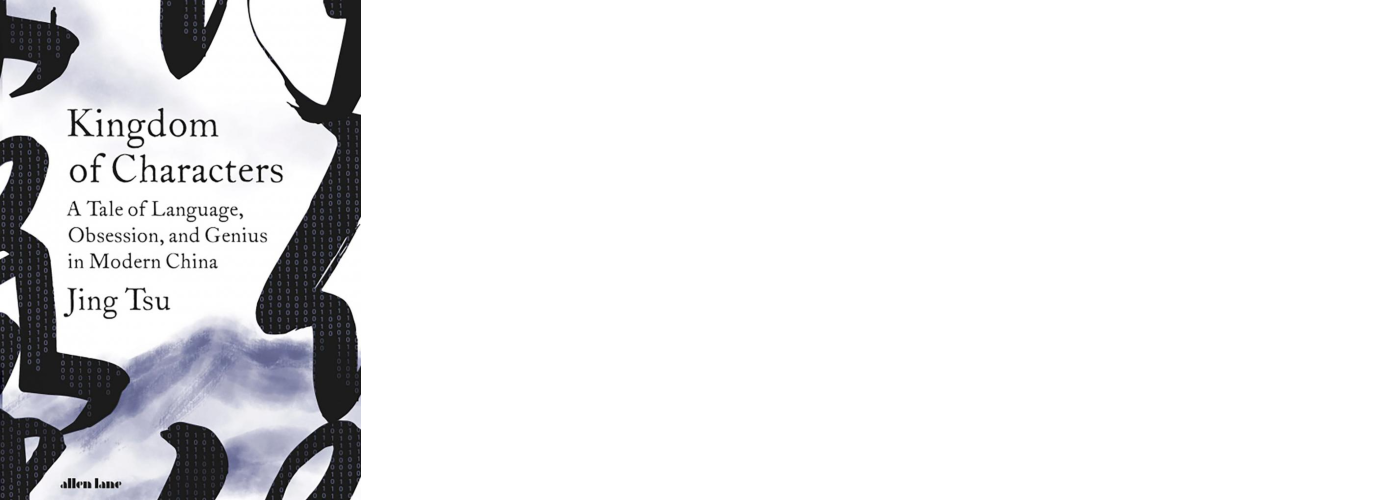Kingdom of Characters review: a ‘delightful mix of history and linguistics’
Jing Tsu’s ‘enchanting’ book tells the story of the Chinese language over the past 150 years

A free daily email with the biggest news stories of the day – and the best features from TheWeek.com
You are now subscribed
Your newsletter sign-up was successful
This “enchanting” book tells the story of the Chinese language over the past 150 years, and the “revolution” through which it, and its “intricate and arcane” script, were brought into line with the demands of the modern world, said Michael Sheridan in The Sunday Times. It is a “delightful mix of history and linguistics”, shot through with its author’s love for the “enigma and beauty” of the world’s oldest living tongue.
Jing Tsu, professor of East Asian languages at Yale, is an excellent guide to the complexities of the language – which once made literacy the privilege of a tiny elite in imperial China, hobbling communications across the empire and contributing to its humiliation by foreign powers in the 19th century. She gives lively pen portraits of the 20th century reformers – “brilliant, eccentric, wilful and wayward geniuses” – who simplified and adapted it for use with modern communications technologies, from Morse code to the internet, enabling China’s national resurgence.
In 1900, only one in ten people in China could read and write, said Cindy Yu in The Spectator. The many varieties of the language (such as Mandarin and Cantonese) hampered communication, and written Chinese reflected the state of the language as it was spoken 2,000 years ago. But as Tsu shows in this “authoritative” account, the biggest problem was the writing system itself, which uses tens of thousands of characters, “stand-alone ideographs” that are not phonetic and cannot easily be organised in dictionaries.
The Week
Escape your echo chamber. Get the facts behind the news, plus analysis from multiple perspectives.

Sign up for The Week's Free Newsletters
From our morning news briefing to a weekly Good News Newsletter, get the best of The Week delivered directly to your inbox.
From our morning news briefing to a weekly Good News Newsletter, get the best of The Week delivered directly to your inbox.
A Chinese typewriter from 1899 used levers to choose between 4,000 characters on a table-sized disk. Telegrams could only be sent by assigning each character a six-digit number, so that a 25-word message took half an hour to encode, compared with two minutes in English. Efforts to render the language in the Roman alphabet were resisted by cultural conservatives, and complicated because many words in Chinese sound the same and are distinguished only by tone and context.
In the end, the Communists kept hold of Chinese characters, but in simplified form, and developed “pinyin”, said Gaston Dorren in The Guardian. This was a way of rendering Mandarin Chinese in the Roman alphabet – enabling a billion users to type on alphabetic keyboards today. Tsu focuses a little too much on the “also-rans”, those whose plans for linguistic reform did not prevail; and the “linguistic nuts and technological bolts” are often “less than crystal clear”. Even so, the book makes for a “lively”, “colourful” and pleasingly fact-filled read.
Allen Lane 336pp £20; The Week Bookshop £15.99

The Week Bookshop
A free daily email with the biggest news stories of the day – and the best features from TheWeek.com
To order this title or any other book in print, visit theweekbookshop.co.uk, or speak to a bookseller on 020-3176 3835. Opening times: Monday to Saturday 9am-5.30pm and Sunday 10am-4pm.
-
 What to know before filing your own taxes for the first time
What to know before filing your own taxes for the first timethe explainer Tackle this financial milestone with confidence
-
 The biggest box office flops of the 21st century
The biggest box office flops of the 21st centuryin depth Unnecessary remakes and turgid, expensive CGI-fests highlight this list of these most notorious box-office losers
-
 What are the best investments for beginners?
What are the best investments for beginners?The Explainer Stocks and ETFs and bonds, oh my
-
 A thrilling foodie city in northern Japan
A thrilling foodie city in northern JapanThe Week Recommends The food scene here is ‘unspoilt’ and ‘fun’
-
 Tourangelle-style pork with prunes recipe
Tourangelle-style pork with prunes recipeThe Week Recommends This traditional, rustic dish is a French classic
-
 Samurai: a ‘blockbuster’ display of Japan’s legendary warriors
Samurai: a ‘blockbuster’ display of Japan’s legendary warriorsThe Week Recommends British Museum show offers a ‘scintillating journey’ through ‘a world of gore, power and artistic beauty’
-
 BMW iX3: a ‘revolution’ for the German car brand
BMW iX3: a ‘revolution’ for the German car brandThe Week Recommends The electric SUV promises a ‘great balance between ride comfort and driving fun’
-
 Arcadia: Tom Stoppard’s ‘masterpiece’ makes a ‘triumphant’ return
Arcadia: Tom Stoppard’s ‘masterpiece’ makes a ‘triumphant’ returnThe Week Recommends Carrie Cracknell’s revival at the Old Vic ‘grips like a thriller’
-
 My Father’s Shadow: a ‘magically nimble’ love letter to Lagos
My Father’s Shadow: a ‘magically nimble’ love letter to LagosThe Week Recommends Akinola Davies Jr’s touching and ‘tender’ tale of two brothers in 1990s Nigeria
-
 Send Help: Sam Raimi’s ‘compelling’ plane-crash survival thriller
Send Help: Sam Raimi’s ‘compelling’ plane-crash survival thrillerThe Week Recommends Rachel McAdams stars as an office worker who gets stranded on a desert island with her boss
-
 Book reviews: ‘Hated by All the Right People: Tucker Carlson and the Unraveling of the Conservative Mind’ and ‘Football’
Book reviews: ‘Hated by All the Right People: Tucker Carlson and the Unraveling of the Conservative Mind’ and ‘Football’Feature A right-wing pundit’s transformations and a closer look at one of America’s favorite sports